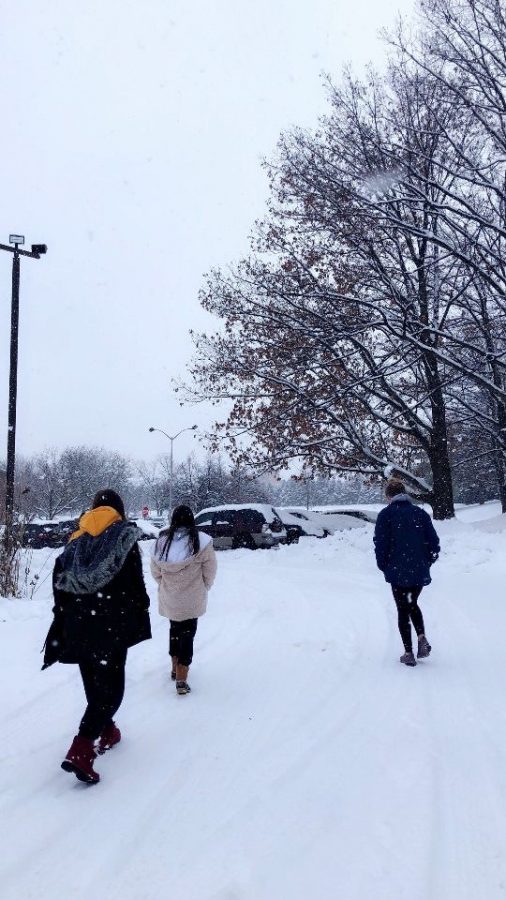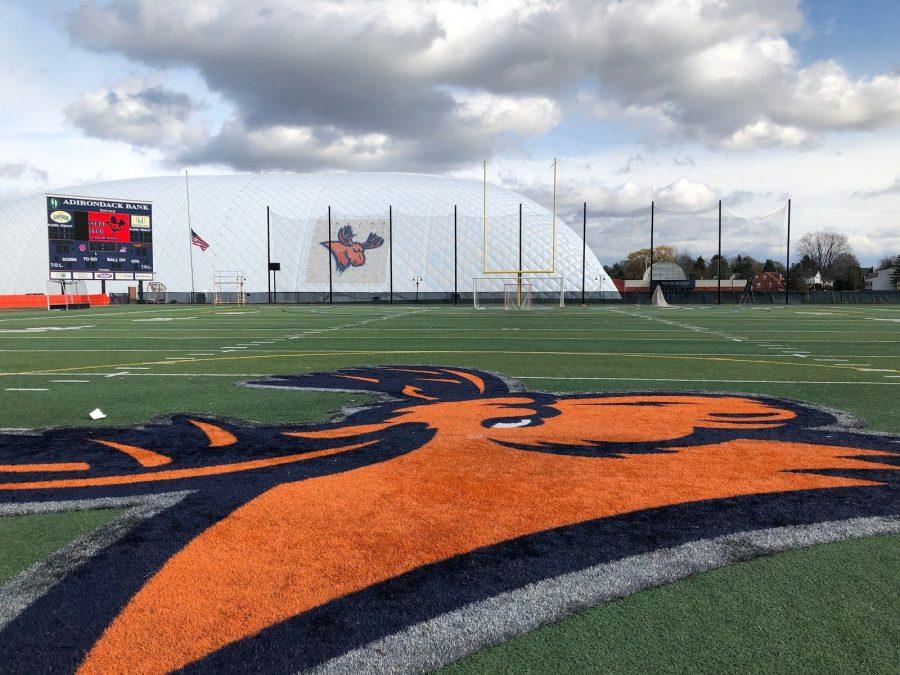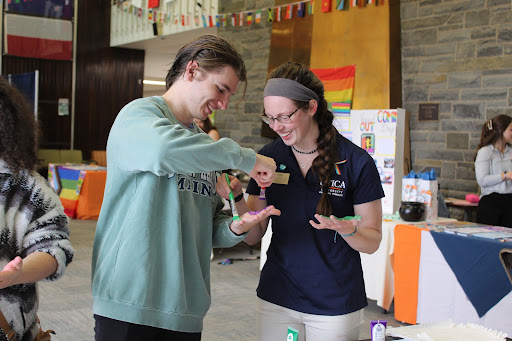UC administrators explain the factors that are considered to cancel classes when weather patterns jeopardize safety.
Maria Montero Silva, Editor-in-Chief
In the face of the cold temperatures and snow conditions that are typical of the Utica winter, canceling classes becomes a possibility every time the weather forecast predicts adverse weather conditions that could potentially affect the campus.
Regardless of the situation, Director of Emergency Management Shad Crowe stated that the “absolute priority” for President Laura Casamento and the entire UC administration is personal safety.
Crowe explained the factors and situations that have to take place in order to make the “difficult” decision of canceling classes.
When a storm approaches, the Office of Emergency Management, Campus Safety and Environmental Health and Conservation start monitoring the weather forecast through the National Weather Service and begin preliminary conversations with the president and the provost offices, according to Crowe.
That is when state and local police, fire and EMS agencies as well as the Department of Transportation are contacted to consult the state of the roads.
“We consolidate this information with current and predicted weather patterns and make a recommendation to the president and provost offices,” Crowe said. “State and local DOT crews are well equipped to manage roadway conditions. However, there are times when conditions are not able to be managed in a timely fashion and traveling becomes dangerous.”
If the DOT has not been able to address dangerous conditions and state and local agencies recommend limited travel, then UC will cancel classes, Crowe said. However, if the campus is experiencing wintry weather but roadways are being plowed, then UC will not cancel classes and students, faculty and staff will be left to assess whether it is safe to travel or not.
Based on the information provided by Emergency Management and the weather forecast, the final decision can involve a delay in the beginning of the classes, early dismissal, which entails canceling classes at the end of the day, or, in the case of a snow emergency, possible closure, according to Provost Todd Pfannestiel.
Factors that are considered are weather and road conditions and time of the year.
Pfannestiel explained that members of the community traveling back the Sunday after Thanksgiving was something that the administration was aware of when the snowstorm hit the campus that Sunday and when classes were canceled on Monday, Nov. 2.
Eventually, Casamento has to make the final decision based upon the collective recommendation from Emergency Management and the Provost Office.
“We try to make those decisions and communicate with the campus community as quickly as possible,” Casamento said. “The primary considerations include timing, severity, intensity and expected duration of the weather; anticipated road conditions, and, above all else, the safety of students, faculty and staff.”
There have been instances in which extreme weather patterns affect areas where students, faculty and staff reside and the situation is completely different on campus and some other times when the weather forecast is inaccurate. In those cases, the college will rarely cancel classes.
“However, just because classes have not been canceled does not imply it is safe for everyone to travel,” Crowe said.
When heavy rains and resulting floods affected Utica in late October, the UC campus was mostly unaffected and roadways were in use. That situation does not mean that commuter students and other faculty and staff are able to travel. According to Crowe, “a number of UC community members were greatly affected by those heavy rains and could not travel to campus.”
When weather patterns hinder traveling, Crowe recommended contacting a professor, supervisor or colleague to communicate the situation.
“If you believe it to be unsafe to travel, then you absolutely should not travel,” he said. “If you are uncertain or confused about what to do, seek help and guidance.”
Crowe defined making the decision to cancel classes as something that “is not easy” as it has a significant impact for many students.
Among those consequences, class cancellations can cause disruptions in the workload to make up for the missed classes as well as it can affect clinical labs for physical and occupational therapy and nursing programs, “placing students behind for weeks,” Crowe explained.
“It is very difficult to lose this valuable time,” he said.
To avoid it, Crowe explained that class cancellations may transition to online sessions, “in the not too distant future.”
Even if classes are canceled, there is still activity going on in the campus.
“Sodexo employees travel in poor conditions to make sure students have fresh food and all dining facilities are open,” Crowe said. “Facilities employees travel regardless of weather to make sure buildings, sidewalks and roadways are safe and clear of snow. Campus safety personnel report to work in all conditions to support students, faculty and staff alike.”


















![President Todd Pfannestiel poses with Jeremy Thurston chairperson Board of Trustees [left] and former chairperson Robert Brvenik [right] after accepting the university's institutional charter.](https://uticatangerine.com/wp-content/uploads/2023/10/unnamed.jpeg)





















































































































